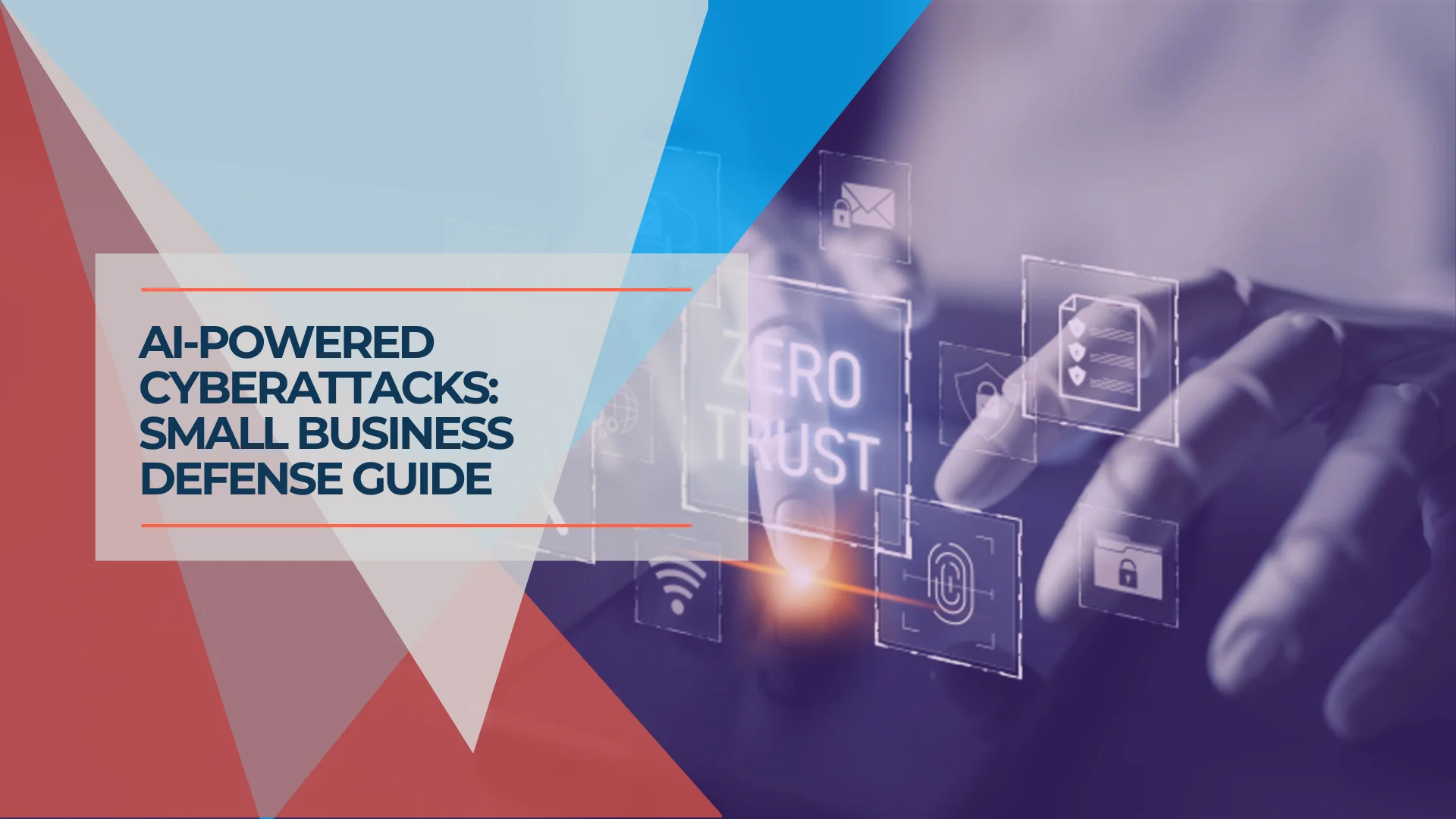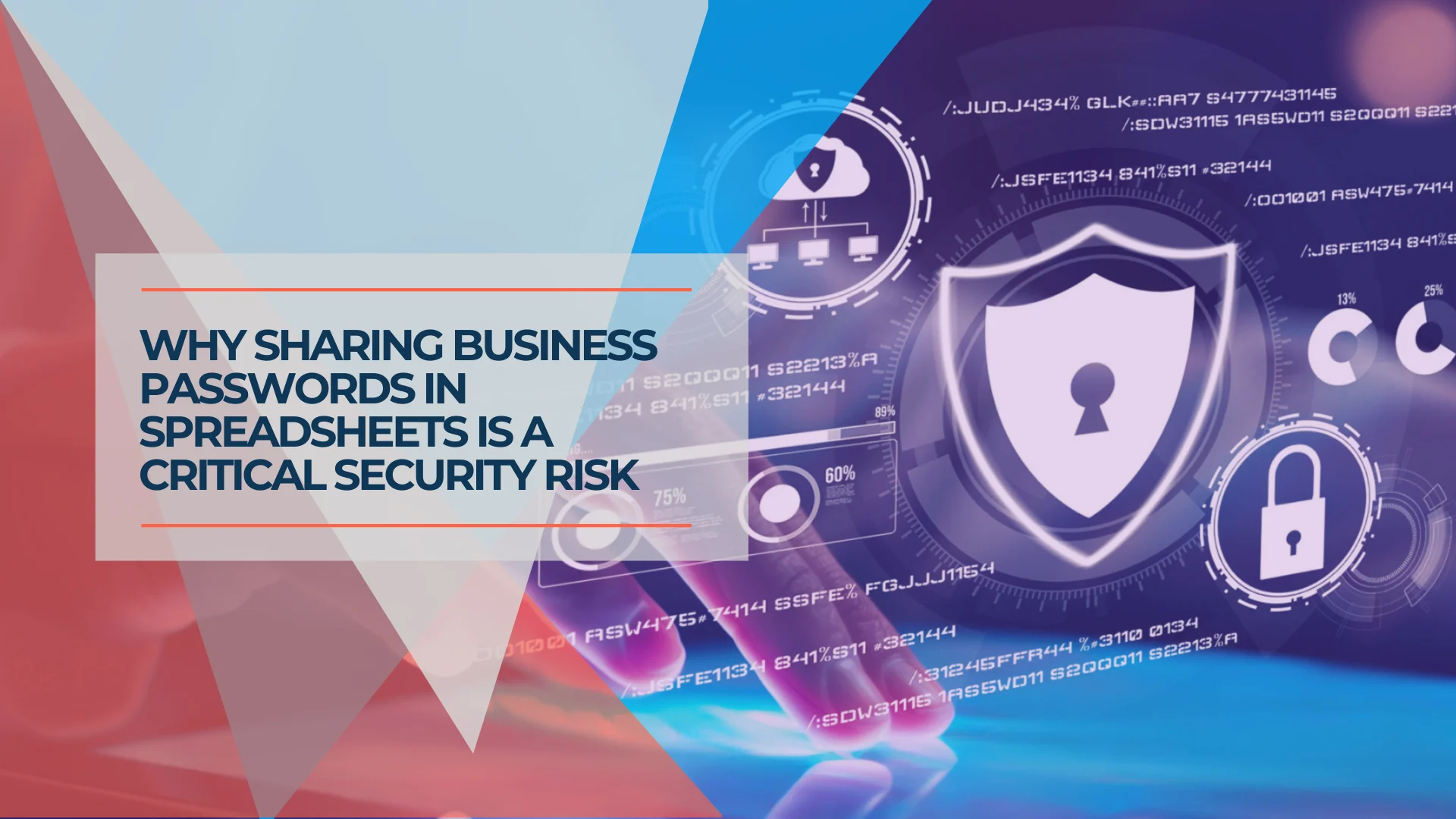Service Business Security: Protection for Companies Without Traditional Offices
Complete cybersecurity guide for contractors, consultants, and field service teams operating without traditional office infrastructure. Mobile-first security strategies with budget-conscious solutions.

Affiliate Disclosure: This article contains affiliate links. If you make a purchase through these links, we may earn a small commission at no extra cost to you.
Contractors and consultants lack enterprise firewalls, yet handle sensitive data across coffee shops, client sites, and work trucks. You connect to public WiFi networks and access business data from mobile devices that travel between trusted and untrusted environments daily.
A data breach can damage customer trust, trigger regulatory penalties, and impact business operations. Yet most security guidance focuses on office networks you don't have.
Key Takeaway
Service businesses need mobile-first security strategies that protect data and communications regardless of location. This guide provides practical implementation frameworks for businesses operating without traditional office infrastructure, focusing on budget-conscious solutions that deliver business-grade protection.
What are the security risks for service businesses?
Service businesses face elevated risks because data travels through untrusted public networks and physically vulnerable mobile devices rather than a secured office perimeter.
Contractors and consultants rarely benefit from enterprise firewalls. Instead, your "network" is often a coffee shop WiFi or a client's guest internet.
Physical Theft: Laptops left in work trucks are high-value targets.
Network Spying: Public WiFi allows attackers to intercept unencrypted traffic.
Device Management: Without a central IT office, patching devices becomes the user's responsibility, often leading to missed security updates.
Client Site Security Challenges
Working at customer locations introduces security variables beyond your control. Client networks may have inadequate security controls, potentially exposing your devices to malware or unauthorized access attempts. Hotel and conference center networks frequently have minimal security monitoring.
The mobility aspect compounds these risks. Static office environments allow for consistent security monitoring and quick incident response. Mobile devices operate independently for hours or days between secure connections, potentially harboring threats that traditional network security tools cannot detect.
For organizations seeking comprehensive protection strategies, our cybersecurity software guide provides additional context on layered security approaches.
Data Protection Compliance
Service businesses often handle sensitive customer information that triggers regulatory compliance requirements:
- Contractors may access homeowner financial information for project financing
- Healthcare service providers must protect patient health information under HIPAA
- Financial consultants manage client investment data subject to privacy regulations
These compliance obligations apply regardless of your office infrastructure or business size. A plumbing contractor who processes credit card payments faces the same PCI DSS requirements as enterprise retailers.
Common Service Business Risk Scenarios
Contractor Data Exposure: Electrician stores customer access codes and security system information on unsecured mobile device, creating liability if device is stolen.
Consultant Communication Breach: Marketing consultant's email account compromised while using hotel WiFi, exposing confidential client campaign strategies.
Field Service Credential Theft: HVAC technician's password manager compromised through public WiFi attack, providing criminals access to customer scheduling systems.
Financial Data Compromise: Tax preparation consultant's laptop stolen from vehicle with unencrypted client tax returns and social security numbers.
Mobile Device Security Foundation
Securing mobile devices is the foundation of service business cybersecurity. Individual device security protects business data and maintains customer trust.
Device Management Strategies
Service businesses face the choice between company-owned devices and bring-your-own-device (BYOD) policies:
Company-Owned Devices:
- Greater security control
- Higher upfront costs
- Ongoing management complexity
BYOD Policies:
- Reduced business expenses
- Challenges separating personal and business data
- Requires clear security requirements
For businesses with fewer than five employees, BYOD policies often prove more practical when implemented with clear security requirements. Employees must install business-approved applications, enable device encryption, and accept remote management capabilities.
Growing service businesses should consider hybrid approaches. Core employees handling sensitive customer data receive company devices with full security controls, while part-time or contractor staff operate under structured BYOD policies.
Essential Device Security Controls
All business mobile devices require fundamental security configurations regardless of ownership model:
Device Encryption: Protects stored data if devices are lost or stolen. Modern smartphones and tablets provide built-in encryption capabilities that activate through simple settings changes. Both iOS and Android devices include encryption by default when you set a passcode.
Screen Lock Requirements: Passwords, PINs, or biometric authentication prevent unauthorized access during brief separations. For service businesses, biometric authentication (fingerprint or face recognition) often provides the best balance of security and convenience during field work.
Remote Wipe Capabilities: Enable businesses to protect data when devices are lost or stolen. Business-grade mobile device management solutions provide remote data deletion for business applications while preserving personal data on BYOD devices. Microsoft 365 and Google Workspace both include basic mobile device management features.
Important: Ensure your BYOD policy explicitly distinguishes between wiping "corporate data" (via MDM containers) versus "whole device" wiping to avoid legal liability with employees' personal photos and data.
Our Apple M4 office setup guide includes mobile device configuration recommendations for businesses implementing Apple ecosystem solutions.
Mobile Application Security
Approved application lists prevent employees from installing potentially malicious software while ensuring necessary business functions remain available.
Email applications require particular attention. Built-in smartphone email applications often lack enterprise security features. Business-grade email applications provide message encryption, secure attachment handling, and integration with company security policies.
File storage and sharing applications need evaluation for both security features and compliance requirements. Consumer cloud storage services may not provide adequate business data protection. Business solutions like Box Business or Tresorit offer encryption and compliance features.
How do I secure business accounts without an office network?
Without network-level access controls found in traditional offices, individual account security determines overall business protection.
Transitioning to Passkeys
Passkeys represent the highest-ROI security move for non-technical users in 2026. They use cryptographic tokens stored on your device, making them resistant to phishing and credential theft.
Whenever possible, switch from passwords to Passkeys. Major services including Google, Microsoft, Apple, and many business platforms now support Passkey authentication. The setup process takes minutes and eliminates the risk of traditional password phishing.
Why Passkeys Matter for Service Businesses:
- Prevents credential theft from phishing attacks that target field workers
- No passwords to remember or type on mobile devices
- Biometric authentication provides quick access
- Cannot be intercepted over public WiFi networks
Start enabling Passkeys on your most critical accounts: email, banking, and customer management systems. Most password managers, including 1Password and Proton Pass, now support Passkey storage and synchronization across devices.
Business Password Manager Implementation
Professional password managers designed for business use address multiple security challenges simultaneously. They generate strong, unique passwords for every business account, eliminate password reuse across services, and provide secure credential sharing among team members.
1Password Business provides comprehensive credential management specifically designed for growing service businesses.
1Password Business Benefits for Service Companies
- Secure credential sharing for customer account access
- Mobile-optimized apps for field work scenarios
- Emergency access controls for business continuity
- Integration with existing business applications
- Administrative controls for team management
Pricing: $7.99 per user monthly, or Teams Starter Pack at $19.95 monthly for up to 10 users
Multi-Factor Authentication Implementation
Multi-factor authentication (MFA) provides additional protection for business accounts, particularly when employees work from unsecured networks.
- Avoid SMS-based MFA - vulnerable to SIM swapping attacks
- Use authenticator apps - Google Authenticator or Microsoft Authenticator generate time-based codes that work without internet connectivity
- Prefer Passkeys - when available, they provide superior security to any MFA method
Business password managers often include authenticator functionality, consolidating security tools.
For comprehensive credential protection strategies, our business password manager comparison evaluates solutions specifically for small business security requirements.
Access Management for Customer Systems
Service businesses often require access to customer systems, creating complex security challenges:
Temporary credential policies establish procedures for receiving, using, and returning customer access information. Time-limited access reduces security exposure while documented procedures ensure consistent handling.
Credential isolation prevents customer access information from mixing with business passwords or personal accounts. Business password managers support organized credential storage with customer-specific folders.
SaaS access auditing prevents accidental data exposure. Regularly review sharing permissions in business tools like CRM systems, project management platforms, and cloud storage to ensure no folders or boards are accidentally set to "public" or shared with unauthorized users.
AI Phishing Defense: Red Flags for Field Workers
Field workers are prime targets for AI-generated scams. In 2026, attackers use AI to create convincing phishing emails and voice calls that impersonate clients or vendors.
Red Flags to Watch For:
- Urgent payment requests via email or text, especially with new payment methods
- Voice calls requesting immediate action on financial matters
- Emails with slight domain variations (client-company.com vs clientcompany.com)
- Requests to bypass normal procedures "just this once"
Verification Protocol:
- Never act on urgent financial requests without verification
- Call the client using a known phone number (not one provided in the suspicious message)
- Verify through a separate communication channel
- When in doubt, delay and verify
Network Security for Mobile Operations
Traditional network security assumes control over the network infrastructure. Service businesses must implement security measures that protect communications and data access regardless of the underlying network quality.
VPN Solutions for Field Workers
Virtual Private Networks (VPN) create encrypted tunnels between mobile devices and business resources, protecting communications even on untrusted networks. Business VPN requirements differ significantly from consumer VPN services.
NordLayer provides enterprise-grade VPN services specifically designed for business mobile workforce protection. The platform combines traditional VPN functionality with Zero Trust Network Access principles.
NordLayer Business VPN Features
- Zero Trust Network Access with device verification
- Cloud firewall protection for remote connections
- Site-to-site connectivity for multiple business locations
- Centralized management and policy enforcement
- Dedicated IP options for consistent access
Pricing: Core tier at $11 per user monthly (billed annually), with 5-user minimum. Lite tier available at $8/user for basic VPN without advanced Zero Trust features.
Get Started With NordLayer
Public WiFi Security Protocols
Public WiFi networks present significant security risks for service businesses. Hotel networks, coffee shop WiFi, and customer internet connections often lack encryption or access controls.
Network verification procedures help employees identify legitimate public networks versus malicious access points designed to steal credentials. Attackers frequently create fake networks with names similar to legitimate services.
Business VPN usage is critical when connecting to any public network. This should be standard operating procedure, with clear guidelines for employees who encounter VPN connectivity issues. Alternative solutions like mobile hotspots provide secure internet access when public networks prove problematic.
Our NordLayer business VPN review provides comprehensive implementation strategies for businesses requiring secure remote connectivity.
Secure Communication Protocols
Email encryption protects sensitive business communications from interception. Many standard email applications lack encryption capabilities.
Proton Business Suite provides encrypted email, calendar, and file storage designed for privacy-conscious businesses. The platform offers end-to-end encryption for all communications.
Secure messaging applications enable real-time business communications without exposing conversations to network monitoring. Consider platforms that integrate with your existing business tools.
File sharing security becomes important when exchanging documents with customers. Business solutions like Tresorit or Box Business provide encrypted file transfer, access controls, and audit trails for regulatory compliance.
Industry-Specific Security Frameworks
Different service business types face unique security challenges and regulatory requirements.
Contractor Security Requirements
Construction contractors, electricians, plumbers, and similar trades often access customer homes and businesses, creating significant liability exposure.
Physical security measures become paramount:
- Vehicle security systems protect laptops and mobile devices stored in work trucks
- Secure storage solutions prevent theft of devices containing customer access information
- Device locking systems secure equipment during job site work
Payment processing security applies to contractors who accept credit card payments. PCI DSS compliance requirements apply regardless of business size. Our small business security assessment guide includes payment security evaluation criteria.
Scheduling and customer management systems often contain sensitive information about customer routines, security systems, and valuable property. Evaluate software for encryption capabilities, access controls, and data backup procedures. Consider CRM platforms like Monday CRM or Pipedrive that include security features.
Professional Service Consultant Protection
Marketing consultants, accountants, lawyers, and similar professional service providers handle highly sensitive client information.
Client confidentiality obligations often exceed standard business security requirements. Attorney-client privilege, accountant confidentiality rules, and consulting non-disclosure agreements create legal obligations for information protection.
Home office security becomes important for consultants operating from residential locations:
- Network segmentation separates business activities from personal internet usage (consider business routers or VLANs)
- Dedicated business devices and applications maintain professional boundaries
- Physical security measures like locked filing cabinets for sensitive documents
- Separate guest WiFi network for clients visiting your home office
Document management security requires particular attention:
- Version control and access logging
- Secure archive procedures with Box Business or similar platforms
- Business-grade document management systems with encryption
- Regular audit of who has access to sensitive client documents
Field Service Team Coordination
Companies with multiple field service technicians face additional security challenges related to team coordination and customer scheduling.
Centralized credential management enables secure distribution of customer access codes to appropriate technicians while maintaining audit trails. Business password managers with team features support this requirement.
Real-time communication security becomes essential for coordinating technician schedules and emergency service calls. Business communication platforms like Nextiva or CloudTalk provide secure voice and messaging with encryption.
Mobile device management policies should address technician device usage during customer visits with clear guidelines about personal device usage and customer photography.
Budget-Conscious Security Implementation
Service businesses operate with constrained budgets that must balance security investments against other business priorities.
Can I secure a small business for under $110?
Yes, a small team can build a comprehensive security stack for approximately $110 monthly by layering standalone enterprise tools. While most business security services require 5-user minimums, this provides exceptional value at roughly $22 per user.
Budget Security Stack (2-User Team)
For a 2-person team (paying 5-seat minimums on security tools):
Password Manager: NordPass Business – $17.95/month (5-user minimum @ $3.59, billed annually)
VPN Protection: NordLayer Core – $55.00/month (5-user minimum @ $11, billed annually)
Business Email: Google Workspace Starter – $14.00/month (2 users @ $7, billed annually)
Total: $86.95/month for 2 users ($43.48 per user)
For a 5-person team (utilizing full licenses):
Password Manager: $17.95/month (5 users included)
VPN Protection: $55.00/month (5 users included)
Business Email: $35.00/month (5 users @ $7, billed annually)
Total: $107.95/month for 5 users ($21.59 per user)
This budget-conscious approach addresses fundamental vulnerabilities while keeping costs minimal. Each component serves a distinct security function without overlap.
Endpoint Protection Note: This budget stack relies on built-in OS security (Windows Defender, macOS XProtect) for antivirus protection. For businesses requiring dedicated endpoint security, consider adding Bitdefender Business Security or ESET SMB Security (~$5-8/user monthly).
Comprehensive All-in-One Protection
Proton Complete Stack ($77/month for 5 users)
Integrated Platform: Proton Business Suite – $64.95/month (5 users, billed annually)
- Encrypted email and calendar
- Business VPN with secure access
- Password manager (Proton Pass)
- Encrypted cloud storage (1TB per user)
- End-to-end encryption across all services
Device Management: Mobile device management solution – $12/month
Total Monthly Cost: $76.95 for complete protection
This integrated approach eliminates service overlap while providing enterprise-grade security through a single vendor. The unified platform simplifies user training and ensures consistent security policies.
Premium Best-of-Breed Solution
Enterprise-Grade Stack ($132/month for 5 users)
Password Management: 1Password Business – $39.95/month (5 users, billed annually)
Zero Trust VPN: NordLayer Core – $55/month (5 users @ $11, billed annually)
Business Email: Microsoft 365 Business Premium – $22/month (5 users, billed annually)
Device Management: Microsoft Intune (included with 365 Premium)
Total Monthly Cost: $131.95 for maximum functionality
This premium configuration provides best-in-class solutions for each security function, offering maximum features and integration capabilities.
Get Help Choosing Your Security StackROI Analysis and Justification
Security investments for service businesses generate returns through multiple channels:
Customer trust and professional credibility improve when businesses demonstrate commitment to data protection.
Insurance premium reductions often offset security implementation costs. Many cyber insurance providers offer 15-25% discounts for businesses implementing multi-factor authentication and encrypted communications.
Operational efficiency improves with organized password management, secure file sharing, and reliable communications.
Regulatory compliance protection prevents penalties reaching thousands of dollars. Industry-specific requirements like HIPAA, PCI DSS, and state privacy laws impose significant fines for non-compliance.
For additional context on security investment returns, our small business security assessment guide helps businesses evaluate current protection levels.
Implementation Timeline and Training
Successful security implementation requires phased approaches that minimize business disruption while establishing effective protection measures.
30-Day Quick Start Implementation
Week-by-Week Deployment
Week 1: Password manager deployment and initial credential security. Employee training focuses on password manager usage and installation procedures.
Week 2: Mobile device security configuration. Device encryption activation, screen lock requirements, and basic application policies.
Week 3: VPN protection for public network usage. Business VPN deployment with employee training on connection procedures and usage policies.
Week 4: Secure communication procedures and policy documentation. Email encryption setup, secure file sharing procedures, and emergency contact protocols.
90-Day Comprehensive Deployment
Month 2: Mobile device management deployment and policy enforcement. Administrative controls enable remote device monitoring, application management, and security policy compliance.
Advanced authentication implementation provides enhanced protection for business accounts. Multi-factor authentication deployment across all business services.
Month 3: Compliance documentation and security monitoring procedures. Establishing audit trails, planning incident response, and conducting regular security reviews.
Employee Training and Awareness
Security training for service business employees must address practical scenarios and real-world usage challenges:
Scenario-based training helps employees understand security threats in the context of their daily work. Examples of phishing attempts, public WiFi risks, and physical device security create practical knowledge.
Regular security updates maintain awareness of evolving threats. Monthly briefings, security newsletters, or team meetings provide ongoing education.
Incident reporting procedures ensure employees know how to respond to potential security issues. Clear escalation paths, contact information, and initial response steps help minimize damage.
Need Help With Security Training?Emergency Response and Business Continuity
Service businesses face unique business continuity challenges during security incidents. Mobile operations must continue while investigating and responding to potential breaches.
Incident Response Procedures
Initial incident assessment helps determine response severity and required actions. Clear criteria distinguish between minor security concerns and serious incidents.
Device isolation procedures prevent security incidents from spreading. Remote device management enables administrators to isolate compromised devices while preserving business data.
Customer notification requirements depend on incident severity and regulatory obligations. Template communications help businesses notify customers appropriately.
Breach Protocol: Who to Call
When a security incident occurs, having a clear action plan helps you respond effectively. Keep this contact list accessible:
Immediate Actions (First 30 Minutes):
- Isolate the affected device - Disconnect from all networks
- Document what happened - Write down timeline and symptoms
- Contact your IT provider - [Your IT Support Number]
Critical Contacts:
- Cyber Insurance Provider: [Policy Number] | [Claims Phone]
- IT Security Support: [Provider Name] | [Emergency Number]
- Bank/Financial Institution: [Fraud Department Number]
- Legal Counsel: [Attorney Name] | [Phone Number]
For Data Breaches Involving Customer Information:
- State Attorney General: [Your State's Reporting Line]
- Industry Regulator: [If applicable - HIPAA, PCI DSS, etc.]
Do NOT:
- Pay ransoms without consulting insurance and legal counsel
- Delete evidence or logs
- Communicate with customers until you understand the scope
Data Recovery and Backup Strategies
Automated backup systems protect business data from ransomware attacks, device theft, and accidental deletion. Cloud backup services like IDrive or Acronis Cyber Protect provide off-site data protection accessible during local disasters.
Recovery testing ensures backup systems function properly when needed. Regular recovery drills help identify backup failures before actual emergencies. Test your restore process with realistic scenarios—a backup is useless if it takes 3 days to download 1TB of project photos over a coffee shop connection. Consider restore time when selecting backup solutions.
Business continuity planning addresses operational challenges during security incidents. Alternative communication methods, temporary customer access procedures, and partner coordination help maintain operations.
Frequently Asked Questions
Do small service businesses really need business-grade security?
Service businesses often handle more sensitive customer information than traditional office businesses. Contractors access customer homes and security systems, consultants manage financial and strategic information, and field service teams coordinate customer schedules.
The cost of business-grade security has decreased significantly while threats have increased. Basic protection packages cost less than $100 monthly for small teams while protecting against attacks that could cost thousands in breach response.
How do I train employees who aren't tech-savvy on security procedures?
Focus training on practical scenarios rather than technical concepts. Show employees examples of phishing emails they might receive, demonstrate proper public WiFi usage, and walk through password manager usage during normal work activities.
Create simple checklists for common security tasks like connecting to public WiFi, accessing customer systems, and reporting suspicious activities.
What's the minimum security investment for a solo contractor?
Solo contractors can implement effective security for approximately $50-75 monthly through careful solution selection:
- Business password manager: NordPass Business at $3.59/month
- Business VPN service: NordVPN or business-grade alternatives
- Encrypted email: Proton Business starting at $12.99/user
- Automated backup: IDrive at $5-10/month
Cyber insurance discounts often offset these costs, and avoiding a single breach response saves thousands.
How do I handle customer access codes and security information securely?
Business password managers like 1Password Business or NordPass Business provide secure storage for customer access codes, security system information, and temporary credentials. Organize customer information in separate folders to maintain isolation between different clients.
Implement time-limited access policies for temporary customer credentials, removing or updating access information when projects complete. This protects both your business and your clients.
What regulations apply to my service business type?
Regulatory requirements depend on your industry and customer information types:
- Payment processing: Triggers PCI DSS requirements regardless of business size
- Healthcare-related services: May fall under HIPAA obligations
- Financial services: Face various privacy and security regulations
Consult with industry associations or legal advisors familiar with your business type to understand specific regulatory obligations.
How do I evaluate whether my current security measures are adequate?
Key indicators of adequate security include:
- Encrypted devices and communications
- Unique passwords for all business accounts
- Secure backup systems
- Employee security training
- Documented incident response procedures
Professional security assessments provide additional validation and improvement recommendations. Our cybersecurity services include comprehensive security evaluations tailored to service businesses.
Next Steps: Securing Your Service Business
Service businesses face unique cybersecurity challenges that traditional office-focused security advice doesn't address. Mobile operations, customer site work, and distributed teams require security approaches that protect data and communications regardless of location.
Comprehensive security measures don't require massive upfront investments or complex technical expertise. Phased implementations, starting with password management and VPN protection, provide immediate security improvements while establishing foundations for enhanced protection.
The cost of security investment is minimal compared to potential breach response expenses, regulatory penalties, and customer trust recovery efforts. Modern business security solutions provide enterprise-grade protection at prices accessible to growing service businesses.
Whether you're implementing security measures yourself or need professional guidance, the key is to start with the fundamentals: password management, VPN protection, and device security. These three elements form the foundation of mobile-first security that protects your business and your customers.
Schedule Security AssessmentRelated Resources
- Business VPN Mobile Teams Guide – Mobile workforce protection
- Business VPN vs Consumer VPN – VPN decision guide
- NordLayer Business VPN Review – Enterprise VPN analysis
- Best Business Password Managers – Credential management
- Best Cybersecurity Software for Small Business – Security tools
- Small Business Security Assessment Guide – Security evaluation
- Apple M4 Office Setup Guide – Apple device configuration
- Cybersecurity Services – Professional support
Related Articles
More from Cybersecurity

AI-Powered Cyberattacks: Small Business Defense Guide
Practical guide to defending against AI-enhanced cybersecurity threats. Learn how AI changes common attack methods and build effective protection for $182-308/month with a straightforward 90-day implementation timeline.
18 min read

The True Cost of Employees Sharing Passwords in Spreadsheets
Password spreadsheets cost businesses millions in breaches. Learn the hidden financial risks of shared credentials and how to protect your company.
13 min read

Best Password Manager for Small Business 2026: Admin-Focused Comparison
Compare Proton Pass, 1Password, NordPass & Bitwarden for real-world business deployment. Admin controls, team management, offboarding, and pricing that scales.
27 min read
